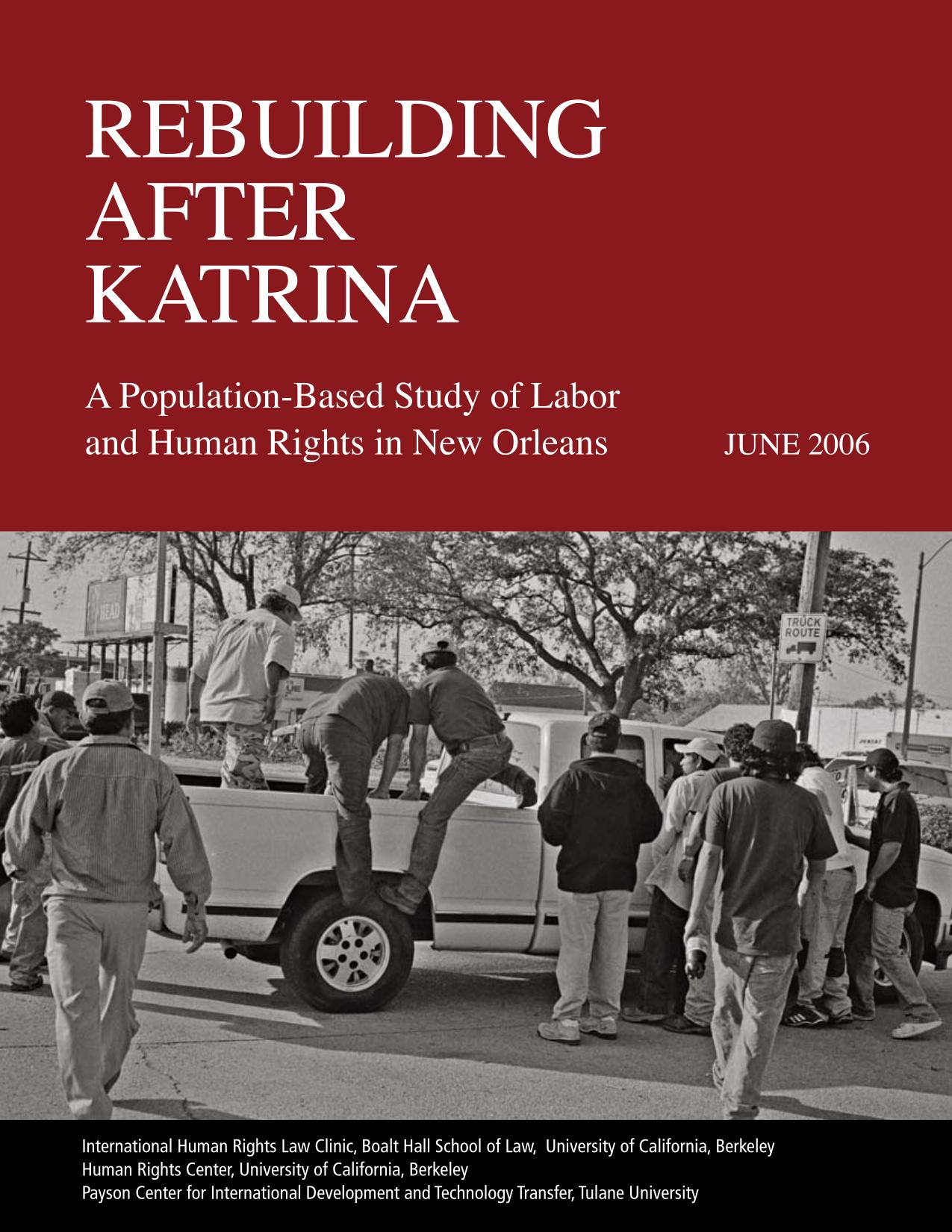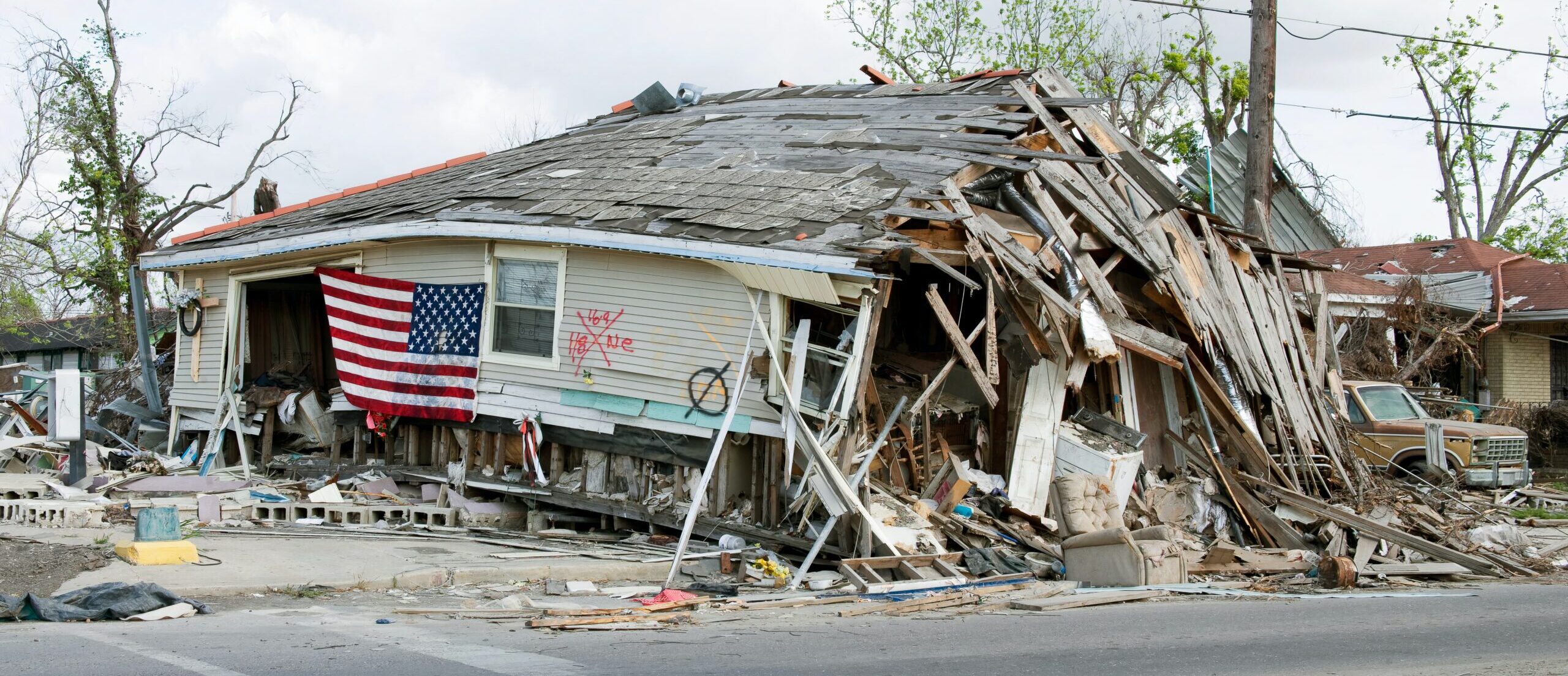Rebuilding After Katrina: A Population-Based Study of Labor and Human Rights in New Orleans
Download PDFSummary
Local and out-of-state contractors, aware that federal reconstruction grants would be forthcoming, soon moved into areas affected by the hurricane to begin the massive clean up operation. But labor was scarce. The number of workers employed in construction and related industries had dropped by nearly half. On September 6, the Department of Homeland Security announced that it was suspending certain labor regulations for a 45-day period to accommodate survivors who had lost identity documents in the storm. During that time, employers would not be required to confirm employee identity and eligibility documents to federal authorities. Two days later, the Department of Labor lifted wage restrictions for a period of two months. Contractors working on federally-funded construction projects could now pay their employees below prevailing federal wage standards. Word of the need for labor in New Orleans spread quickly throughout the United States and the city was soon flooded again, this time with thousands of men and women eager to find work. As clean up efforts got underway, the media reported that some employers in the Gulf Coast area had failed to pay their workers or to provide them with adequate safety equipment and housing. The Southern Poverty Law Center filed lawsuits against two large contractors for failure to pay wages to migrant workers who were removing toxic mold from hospitals and schools in order to restore public services to New Orleans. Workers alleged their employers paid them so poorly that they could not afford to buy food. Reports of abuse — coupled with the easing of labor regulations, virtually no monitoring of construction sites, and the city’s lack of adequate housing and healthcare — suggested that unscrupulous contractors could easily be exploiting their workers. Against this background, the International Human Rights Law Clinic and the Human Rights Center at the University of California, Berkeley collaborated with the Payson Center for International Development and Technology Transfer at Tulane University to conduct a study of the situation of construction workers in New Orleans. The study took place in March 2006 and examined both documented and undocumented workers. Documented workers include U.S. citizens, permanent residents, work visa holders, and those workers with temporary immigration status, while undocumented workers are immigrants who are considered to be living in the United States illegally, although some may be eligible for legal status but have not obtained it.

